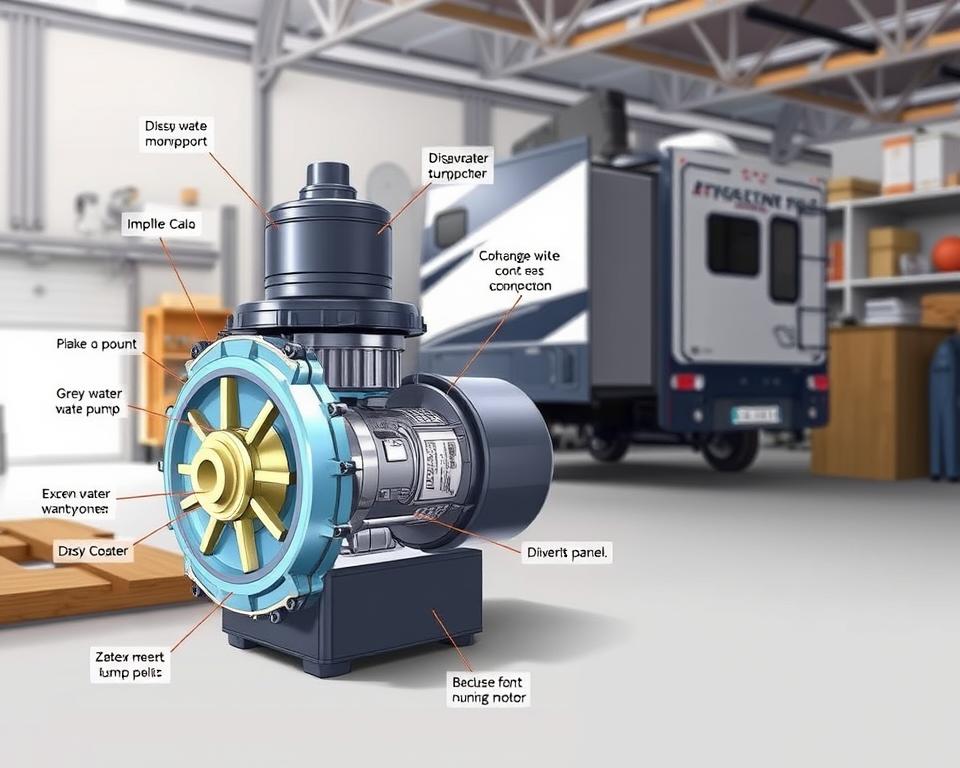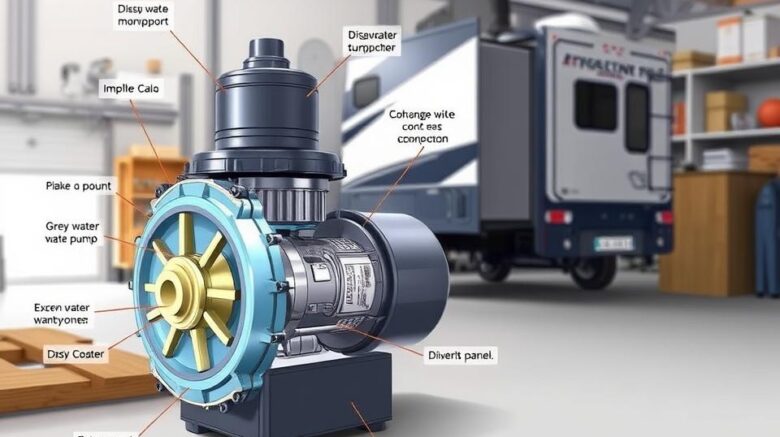Septic System Pumping
Do you ever think about how often you should set up septic system pumping so you can dodge hefty breakdowns? With more than 20 percent of U.S. households relying on septic systems, understanding their maintenance is essential. Having a clear idea of when to plan a septic tank service is key to its longevity. Moreover, you can find economical septic pumping solutions that deliver high-quality functionality while staying on budget. This guide covers critical upkeep advice beneficial for every homeowner.
Critical Summaries
- Routine septic system pumping is crucial for efficient performance.
- Spotting the symptoms that show the requirement for service can prevent major issues.
- Selecting licensed septic system pumpers ensures reliable maintenance.
- Budget-friendly septic pumping choices are available for homeowners.
- Periodic inspections support optimal system performance.
Understanding Your Septic System
A septic system serves a key role in managing household wastewater, consisting of several essential components that operate in unison. The main drain line channels wastewater from your home to the septic tank, where the process initiates. In the tank, an underground chamber, solids sink at the bottom, and bacteria break down these solids, processing the waste efficiently.
The processed liquid effluent subsequently travels from the septic tank to the distribution box, where it is distributed evenly across the drain field or leach field. Here, the soil continues the filtration, continuing to purify the wastewater. Grasping the functions of these septic system parts is essential. It allows homeowners to monitor and care for their systems properly.
Being aware of how your septic system runs allows you to take proactive maintenance measures. It’s advisable to have regular appointments with licensed technicians of septic systems – RV septic pumping near me. They supply crucial insights for optimal performance of your system. These professionals assist in scheduling the required pump-outs and checks. This diligence can greatly lengthen your septic system’s lifespan.
Why Septic System Maintenance Matters
Keeping your septic tank consistently is key for homeowners who aim for their system to last. A well-cared-for system provides peace of mind and secures your property’s value. Without adequate care, you’re risking system breakdowns and health dangers.
Choosing a high-quality septic pumping service is important. They provide timely inspections and pump-outs, extracting sludge and scum buildup. If maintenance is neglected, emergency pumping may be required, which is costly.
Sticking to a consistent maintenance plan is wise. It involves professional evaluations and regular pumping. This preventive measure prevents urgent issues, creating a safer living environment for everyone.

How to Tell Your Septic System Requires Service
Staying mindful of septic system issues can prevent costly repairs and major damage. Common signs signal when your system requires a check. These comprise:
- Slow drains throughout the house
- Pooling water in the yard above the drain field
- Unpleasant odors near the septic tank or leach field
- Unusually lush grass growth in specific areas of your yard
These signs could point to problems that might result in your system failing. Prompt action is vital. Calling in septic pumping professionals for an inspection helps. Timely action stops small issues from growing into serious ones. Moreover, routine upkeep secures your system works well and remains durable.
Best Practices for Septic System Pumping
Correct pumping of your septic tank is imperative to avoid expensive clogs and backups. It’s important to find the appropriate frequency for maintenance. Homeowners should generally arrange pumping every 2 to 5 years, depending on the tank’s size and household wastewater levels. Intensive use of garbage disposals may necessitate more frequent pumping.
Employing qualified pumpers means your tank gets a complete clean and check-up. During pumping, technicians look for any issues, such as damaged baffles. Spotting these problems at an early stage heads off larger expenses and inconveniences later. Scheduled pumping schedules and expert help secure your septic system’s smooth operation.
Why Routine Inspections Matter
Routine inspections are essential for your septic system’s efficiency. Septic system inspections uncover early issues before they grow. Experts advise inspections every three to five years, guided by system size and household usage. This avoids costly fixes.
Holding maintenance records is vital for tracking your system’s condition. These records give insights into previous inspections, repairs, and when to schedule septic tank cleaning services. With this information, organizing for future upkeep becomes easier, keeping septic systems in prime shape.
Frequent inspections and detailed record-keeping not only improve system efficiency but also prolong its life. This strategy protects the environment and the investment in a safe, operational home.
| Inspection Type | Recommendation Frequency | Benefits |
|---|---|---|
| Visual Inspection | Annually | Identify surface issues |
| Professional Inspection | Every 3–5 years | Assess functionality and detect problems |
| Septic Tank Pumping | Every 3–6 years | Prevent overflow and system failure |
Efficient Water Usage to Extend Septic Life
Efficient water use is essential for keeping your septic system robust. It not only supports the environment but also boosts the performance of your home’s plumbing. By embracing easy, yet effective, conservation methods, homeowners can cut down on wastewater.
Space out your laundry activities over the week instead of completing them in a single day. This enables the septic system to handle water better and prevents tank overflow. Choosing low-flow fixtures in your kitchens and bathrooms produces considerable water savings, retaining the water pressure up while reducing the flow rate, thus diminishing the amount of wastewater produced each day.
Swiftly fixing leaks is another method to assist your septic system. Even a small leak can cause a large waste of water, stressing the septic system. Through regular inspections and repairs, you materially improve the system’s efficiency.
Prioritizing water conservation isn’t just good for your septic system; it’s also a step towards sustainable living. Integrating such practices a part of your lifestyle helps both your household and the planet.
Best Practices for Household Waste Disposal
Homeowners hold a vital role in maintaining their septic system’s health by disposing of household waste correctly. It’s essential to avoid throwing away non-biodegradable items like wipes, plastics, and other damaging products in the system. These items can create clogs, leading to expensive repairs and a drop in efficiency.
Converting food scraps and organic materials is a beneficial alternative to sending them to landfill. This practice markedly cuts down on the amount of solid waste entering the septic tank. Emphasizing biodegradable waste disposal helps maintain the ecological balance needed for effective waste management.
It’s essential to monitor what goes down the drains. Non-decomposable items can necessitate more frequent septic tank pumping. By understanding and observing correct waste disposal methods, you can secure a more efficient and long-lasting septic system.
Cleaning Product Tips for Septic Health
The health of your septic system largely hinges on your choice of cleaning products. Selecting septic-safe cleaning products is paramount. These products safeguard the balance of beneficial bacteria that digest waste. Many standard cleaners contain harmful chemicals that endanger this balance, leading to pricey repairs or system failure.
Homeowners should look into natural alternatives that are both powerful and environmentally friendly. Common household items like baking soda, vinegar, and lemon juice are great choices. These natural cleaners are not only effective but also maintain your septic system’s health.
Keeping away from products that contain antibacterial agents and chlorine bleach is vital. Such substances destroy the helpful good bacteria, undermining your system’s functionality. By choosing sustainable products, you ensure both the efficiency and longevity of your septic system.
Why Bacteria Matter in Septic Systems
Bacteria perform a critical role in keeping your septic system functional. They digest solids organically and enhance nutrient processing. A lack of healthy bacteria can trigger system failure, bringing about hefty repairs.
Homeowners can bolster their system by adding organic additives. These products increase beneficial bacteria, making waste decomposition faster. It’s important to opt for organic additives that are advantageous, not harmful, to the septic environment.
A strong bacterial community is essential to a septic system’s longevity and efficiency. It avoids solid buildup and reduces the need for frequent pumping. Emphasizing bacterial health makes waste management more effective and eco-friendly.
Final Thoughts
Septic system care is vital for the longevity and functionality of your home’s wastewater system. Adhering to key maintenance tips prevents expensive repairs. Knowing routine pumping and inspections is key. This secures your septic system stays in top condition.
Educating yourself on your septic system’s operation and best practices in water and waste management is crucial. Engaging professionals like All in Sanitation delivers expertise. This contributes to your septic system’s long-term health and gives peace of mind.
Investing in proper septic maintenance today yields future benefits. It protects your home and boosts your family’s quality of life. Emphasizing septic system care delivers confidence with a well-maintained system.
